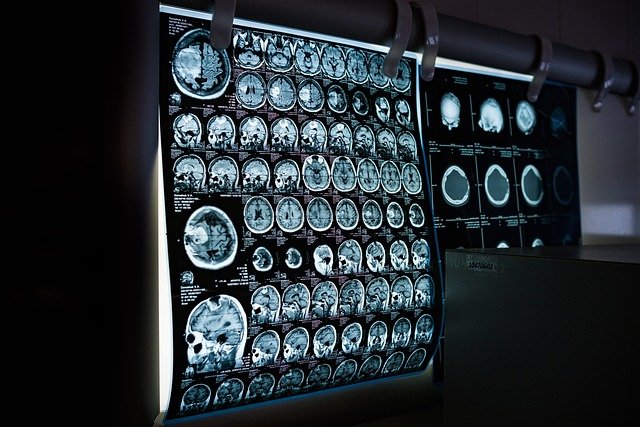Hemoglobinuria Warning Signs – Know When to Seek Help
Hemoglobinuria can be a sign of underlying health issues, but its early symptoms often go unnoticed. From unusual urine color to unexplained fatigue, recognizing these warning signs early can help prevent complications. Learn when it’s time to consult a doctor.

What Are Early Signs of Hemoglobinuria You Might Overlook?
Hemoglobinuria often presents subtle symptoms that can be easily missed or dismissed. One of the most noticeable signs is a change in urine color, which may appear pink, red, or cola-colored. However, this discoloration may not always be consistent and can vary in intensity throughout the day. Other early signs include:
-
Unexplained fatigue or weakness
-
Shortness of breath, especially during physical activities
-
Pale or yellowish skin
-
Frequent urination, particularly at night
-
Mild abdominal discomfort or back pain
It’s important to note that these symptoms can be associated with various conditions, making it crucial to consult a healthcare provider for proper diagnosis.
How Hemoglobinuria Could Indicate a Deeper Health Issue?
The presence of hemoglobin in urine is not a condition in itself but rather a symptom of an underlying problem. Hemoglobinuria can be indicative of several serious health issues, including:
-
Paroxysmal Nocturnal Hemoglobinuria (PNH): A rare blood disorder characterized by the destruction of red blood cells.
-
Hemolytic anemia: A condition where red blood cells break down faster than they can be replaced.
-
Kidney disorders: Various kidney issues can lead to the presence of blood in urine.
-
Infections: Certain infections, particularly those affecting the urinary tract, can cause hemoglobinuria.
-
Trauma: Physical injuries to the kidneys or urinary tract may result in blood in the urine.
Understanding the potential underlying causes emphasizes the importance of seeking medical evaluation when hemoglobinuria is suspected.
Important Diagnostic Steps for Detecting Hemoglobinuria Early
Early detection of hemoglobinuria is crucial for timely treatment and prevention of complications. The diagnostic process typically involves several steps:
-
Urinalysis: This initial test can detect the presence of hemoglobin and other abnormalities in the urine.
-
Blood tests: Complete blood count (CBC) and other specific blood tests can help identify underlying conditions.
-
Imaging studies: Ultrasounds, CT scans, or MRIs may be used to examine the kidneys and urinary tract.
-
Flow cytometry: This specialized test is particularly important for diagnosing PNH.
-
Kidney function tests: These assess how well the kidneys are filtering waste from the blood.
Healthcare providers may recommend additional tests based on initial findings and suspected underlying causes.
Myths About Hemoglobin in Urine and How to Approach Them
Several misconceptions surround hemoglobinuria, which can lead to delayed or improper treatment. Here are some common myths and the facts to dispel them:
Myth 1: Red urine always indicates hemoglobinuria.
Fact: While red urine can be a sign of hemoglobinuria, it can also be caused by certain foods, medications, or other conditions.
Myth 2: Hemoglobinuria is always a sign of kidney disease.
Fact: While kidney issues can cause hemoglobinuria, it can also result from blood disorders or other systemic conditions.
Myth 3: Hemoglobinuria is always painful.
Fact: Many people with hemoglobinuria experience no pain, highlighting the importance of regular check-ups and urine tests.
Myth 4: Only older adults need to worry about hemoglobinuria.
Fact: Hemoglobinuria can affect individuals of all ages, including children and young adults.
Treatment Options and Healthcare Provider Considerations
Treatment for hemoglobinuria depends on the underlying cause and may include:
-
Medication: For conditions like PNH, targeted therapies such as complement inhibitors may be prescribed.
-
Blood transfusions: In cases of severe anemia, transfusions might be necessary.
-
Antibiotics: If an infection is the cause, appropriate antibiotics will be prescribed.
-
Lifestyle changes: Dietary modifications and increased fluid intake may be recommended.
-
Monitoring: Regular check-ups and tests to track the condition’s progression and treatment effectiveness.
When choosing a healthcare provider for hemoglobinuria treatment, consider:
-
Specialization: Look for hematologists or nephrologists with experience in treating hemoglobinuria and its underlying causes.
-
Diagnostic capabilities: Ensure the healthcare facility has access to necessary diagnostic tools and tests.
-
Treatment options: Inquire about available treatment modalities and their potential side effects.
-
Follow-up care: Discuss the long-term management plan and follow-up schedule.
| Healthcare Provider | Specialization | Key Features |
|---|---|---|
| Mayo Clinic | Hematology, Nephrology | Comprehensive diagnostic services, cutting-edge treatments |
| Johns Hopkins Medicine | Hematology, Urology | Specialized PNH Center, multidisciplinary approach |
| Cleveland Clinic | Nephrology, Urology | Advanced urological services, personalized treatment plans |
| Mount Sinai Hospital | Hematology, Oncology | Expertise in rare blood disorders, clinical trials |
Hemoglobinuria is a complex condition that requires careful evaluation and management. By recognizing the early warning signs and seeking prompt medical attention, individuals can improve their chances of successful treatment and prevention of complications. Regular check-ups, open communication with healthcare providers, and adherence to treatment plans are essential components of managing hemoglobinuria effectively. Remember, while the presence of hemoglobin in urine can be concerning, many cases are treatable with proper medical care and follow-up.
This article is for informational purposes only and should not be considered medical advice. Please consult a qualified healthcare professional for personalized guidance and treatment.




